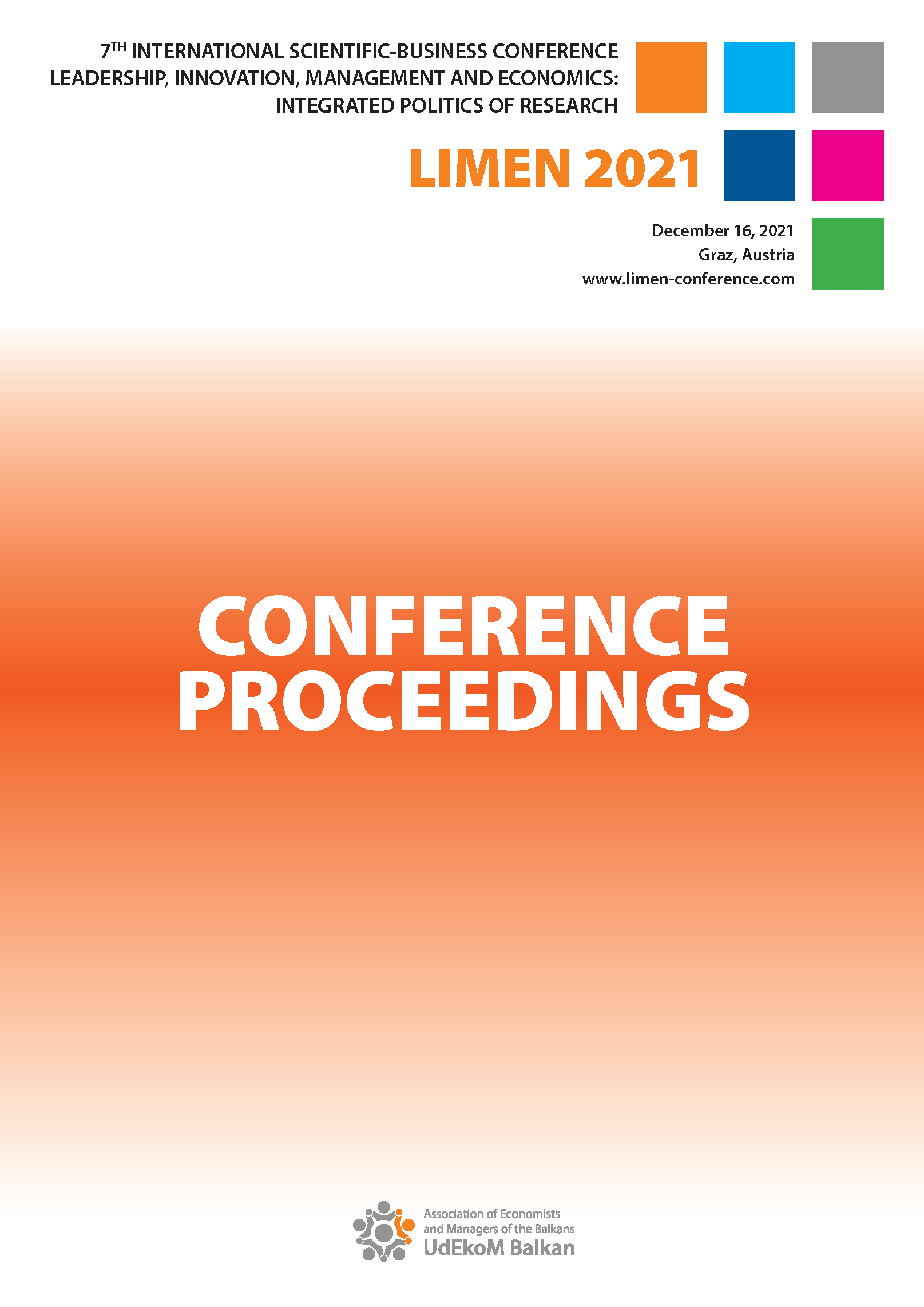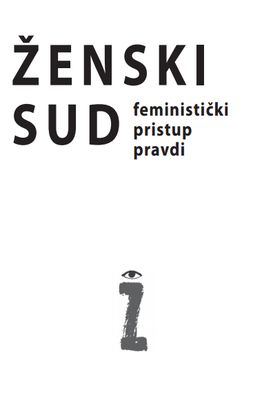
We kindly inform you that, as long as the subject affiliation of our 300.000+ articles is in progress, you might get unsufficient or no results on your third level or second level search. In this case, please broaden your search criteria.

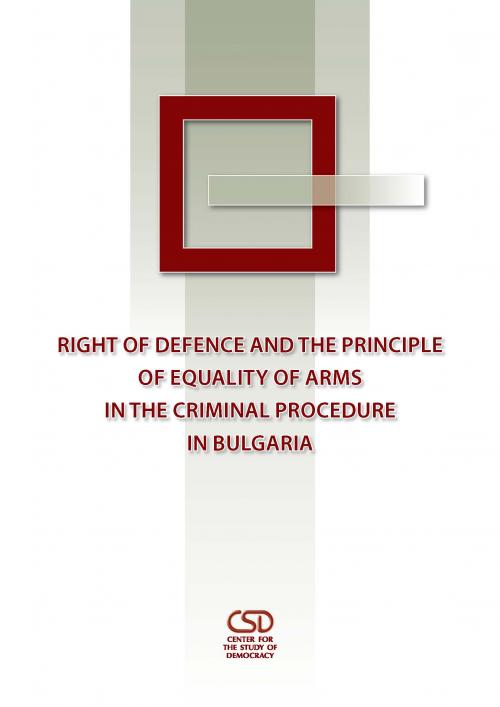
The publication analyses the regulation of the right of defence in Bulgaria and explores the principle of equality of the parties in the pre-trial phase. For the purposes of the study the authors present the system of judicial and investigative bodies as well as the most important characteristics of the criminal proceedings, in particular of the pre-trial proceedings. The study discusses the rights of the defence counsels and their procedural role and outlines a number of problems that attorneys face in defending their clients during the criminal proceedings.
More...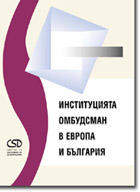
The handbook The Ombudsman Institution in Europe and Bulgaria presents the recently adopted ombudsman legislation, offers an updated review of both the general and specific aspects of the European countries’ experience, the initiatives and documents of the Council of Europe referring to the establishment by the Member States of ombudsman institutions on national, regional and local level and the cooperation between the ombudsmen of the Member States and between them and the Council of Europe, and contains information on the legal framework and the activities of the European Ombudsman as a mechanism for protecting human rights on European Union level.
More...
(Serbian edition) Throughout the totalitarian rule of the regime of Slobodan Milošević and his henchmen, which lasted for over a decade, the country’s prisons remained shut to public scrutiny. Information about the state of human rights of the prisoners and the conditions in which they served their sentences was the exclusive privilege of the state authorities directly involved and of the individuals and institutions concerned with the matter for purposes of scientific research. The question of prisoners’ human rights was completely marginalized by war, crimes, economic hardship and daily violations of citizens’ human rights and freedoms up to 5 October 2000. For many a convict, being locked away to serve a sentence of imprisonment did not mean mere deprivation of liberty for a set period of time, but also the start of a cruel struggle for survival in the gloom of lawlessness, corruption, torture, inhuman conditions and society’s total lack of interest in his or her life behind bars. It was only after widespread prison rioting broke out in November 2000 that the public’s attention was drawn to the conditions in which the prisoners served their sentences. The prisoners put out announcements throwing light on the substandard and inhuman conditions prevailing in Serbia’s penitentiaries and prisons. During the riots, groups and individual prisoners made statements complaining that the prison conditions were far below the levels set by relevant international standards and domestic prison rules. The prisoners alleged serious violations of their physical and psychological integrity, humiliating and degrading treatment, unjust punishment and general arbitrary treatment by prison personnel. They complained of, among other things, torture by beating, lack of minimum personal hygiene facilities, absence of medical treatment and health care, and corruption among prison administrative staff. Some of the allegations and complaints were partly confirmed by competent officials of the Ministry of Justice. As a palliative for the utterly unsatisfactory prison conditions, federal and republican amnesty laws were duly introduced to be finally adopted respectively on 26 February 2001 and 13 February 2001. Nonetheless, although a number of convicts were fully amnestied and a percentage of sentences commuted, the conditions in which prisoners served their sentenced remained unchanged. In addition to the factors mentioned above, the inhuman conditions in Serbia’s prisons endured and multiplied also owing to the country’s isolation of many years, during which time no international organization other than the International Red Cross was granted access to its prisons. Domestic non-governmental organizations were also kept at arm’s length and only rarely allowed to see what went on inside. In view of the circumstances enumerated above, it was clearly necessary to introduce continuous monitoring of prisons by an independent, non-governmental institution in order to obtain a realistic picture of the prison conditions. The new government is aware that admission to the Council of Europe and to other international organizations depends in part on the conditions in which sentenced persons serve their prison sentences, as well as that the public must be informed about those conditions. So, after presenting the concept and objectives of the Prison Monitoring project, the Helsinki Committee for Human Rights in Serbia was granted permission in May 2001 to visit institutions for the enforcement of criminal sanctions. This meant that for the first time in the history of this state an NGO could apply for and be granted permission to visit places of detention, custody and imprisonment without any restrictions, to interview prisoners with no personnel being present, and to talk to personnel without the presence of administration officers. Between June 2001 and October 2003, the Helsinki Committee paid a total of twenty-one visits to institutions for the enforcement of sanctions entailing the deprivation of liberty. During the period covered by this report (April 2002 to October 2003) the Helsinki Committee visited twelve institutions (one maximum-security prison, two closed prisons, three open prisons, two district prisons, one psychiatric prison, one reformatory, and one juvenile prison). In launching the project, the Helsinki Committee was principally guided by Article 64 of the European Prison Rules which states: ‘Imprisonment is by the deprivation of liberty a punishment in itself. The conditions of imprisonment and the prison regimes shall not, therefore, except as incidental to justifiable segregation or the maintenance of discipline, aggravate the suffering inherent in this.’ The Helsinki Committee hopes that its efforts to complete the project and publish this book will make a small but valuable contribution towards achieving this goal.
More...
(English edition) Throughout the totalitarian rule of the regime of Slobodan Milošević and his henchmen, which lasted for over a decade, the country’s prisons remained shut to public scrutiny. Information about the state of human rights of the prisoners and the conditions in which they served their sentences was the exclusive privilege of the state authorities directly involved and of the individuals and institutions concerned with the matter for purposes of scientific research. The question of prisoners’ human rights was completely marginalized by war, crimes, economic hardship and daily violations of citizens’ human rights and freedoms up to 5 October 2000. For many a convict, being locked away to serve a sentence of imprisonment did not mean mere deprivation of liberty for a set period of time, but also the start of a cruel struggle for survival in the gloom of lawlessness, corruption, torture, inhuman conditions and society’s total lack of interest in his or her life behind bars. It was only after widespread prison rioting broke out in November 2000 that the public’s attention was drawn to the conditions in which the prisoners served their sentences. The prisoners put out announcements throwing light on the substandard and inhuman conditions prevailing in Serbia’s penitentiaries and prisons. During the riots, groups and individual prisoners made statements complaining that the prison conditions were far below the levels set by relevant international standards and domestic prison rules. The prisoners alleged serious violations of their physical and psychological integrity, humiliating and degrading treatment, unjust punishment and general arbitrary treatment by prison personnel. They complained of, among other things, torture by beating, lack of minimum personal hygiene facilities, absence of medical treatment and health care, and corruption among prison administrative staff. Some of the allegations and complaints were partly confirmed by competent officials of the Ministry of Justice. As a palliative for the utterly unsatisfactory prison conditions, federal and republican amnesty laws were duly introduced to be finally adopted respectively on 26 February 2001 and 13 February 2001. Nonetheless, although a number of convicts were fully amnestied and a percentage of sentences commuted, the conditions in which prisoners served their sentenced remained unchanged. In addition to the factors mentioned above, the inhuman conditions in Serbia’s prisons endured and multiplied also owing to the country’s isolation of many years, during which time no international organization other than the International Red Cross was granted access to its prisons. Domestic non-governmental organizations were also kept at arm’s length and only rarely allowed to see what went on inside. In view of the circumstances enumerated above, it was clearly necessary to introduce continuous monitoring of prisons by an independent, non-governmental institution in order to obtain a realistic picture of the prison conditions. The new government is aware that admission to the Council of Europe and to other international organizations depends in part on the conditions in which sentenced persons serve their prison sentences, as well as that the public must be informed about those conditions. So, after presenting the concept and objectives of the Prison Monitoring project, the Helsinki Committee for Human Rights in Serbia was granted permission in May 2001 to visit institutions for the enforcement of criminal sanctions. This meant that for the first time in the history of this state an NGO could apply for and be granted permission to visit places of detention, custody and imprisonment without any restrictions, to interview prisoners with no personnel being present, and to talk to personnel without the presence of administration officers. Between June 2001 and October 2003, the Helsinki Committee paid a total of twenty-one visits to institutions for the enforcement of sanctions entailing the deprivation of liberty. During the period covered by this report (April 2002 to October 2003) the Helsinki Committee visited twelve institutions (one maximum-security prison, two closed prisons, three open prisons, two district prisons, one psychiatric prison, one reformatory, and one juvenile prison). In launching the project, the Helsinki Committee was principally guided by Article 64 of the European Prison Rules which states: ‘Imprisonment is by the deprivation of liberty a punishment in itself. The conditions of imprisonment and the prison regimes shall not, therefore, except as incidental to justifiable segregation or the maintenance of discipline, aggravate the suffering inherent in this.’ The Helsinki Committee hopes that its efforts to complete the project and publish this book will make a small but valuable contribution towards achieving this goal.
More...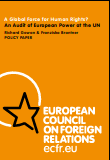
The European Union (EU) is suffering a slow-motion crisis at the United Nations (UN). The problem is not a lack of internal cohesion, which has improved markedly since the nadir of the Iraq War. The problem is fading power to set the rules of the game. The EU’s members insist that the UN is central to their vision of international order and universal human rights – but the UN is increasingly being shaped by China, Russia and their allies. This paradox has come to the fore in 2008 as the EU has tried to work through the UN on Burma and Zimbabwe, yet been unable to get Security Council resolutions for action. These defeats come on top of previous setbacks for the EU at the UN in cases from Kosovo to Darfur. This is partially due to geopolitical shifts. But this report shows that the EU has also been the architect of its own misfortune. Europe has lost ground because of a reluctance to use its leverage, and a tendency to look inwards – with 1,000 coordination meetings in New York alone each year – rather than talk to others. It is also weakened by a failure to address flaws in its reputation as a leader on human rights and multilateralism. If Europe can no longer win support at the UN for international action on human rights and justice, overriding national sovereignty in extreme cases, it will have been defeated over one of its deepest convictions about international politics as a whole. This is particularly true in cases involving the Responsibility to Protect against genocide and mass atrocities, when the humanitarian consequences of inaction are most severe.
More...
The International Conference The Future of Ethics, Education and Research was held on October 16-17, 2017 in Montgomery County Campus, Rockville, MD, USA, and was organized by Research Association for Interdisciplinary Studies
More...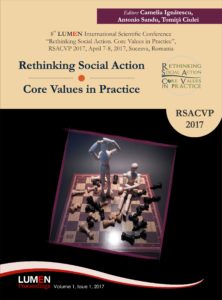
Proceedings Volume: Rethinking Social Action. Core Values in Practice Edited by: Camelia Ignătescu, Antonio Sandu, Tomiţă Ciulei // Published by: © LUMEN, 2017, Iasi, Romania & London, UKISSN (print): 2601 – 2510 ISSN (on-line): 2601 – 2529ISSN–L: 2601 – 2510 // ISBN: 978-1-910129-13-5Indexed by: CEEOL, RePEc, Econ Papers, submitted for evaluation to Clarivate Analytics – Web of Sciences // Conference title: 8th LUMEN International Scientific Conference Rethinking Social Action. Core Values in Practice | RSACVP 2017 | 6-9 April 2017 | Suceava – RomaniaDates: April 6-9, 2017Location: Suceava, Romania
More...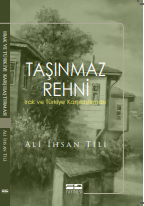
Because we are the Immovable pledge, we will deal with the same limited right. The immovable pledge is a limited right and follows the original right, a right attached to the original right, and if the original right ends, the same limited right ends spontaneously.
More...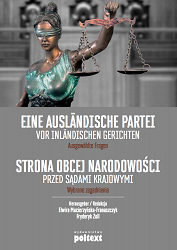
Dieser Band stellt das Ergebnis von Untersuchungen dar, die im Rahmen des von derUniversität Osnabrück in Kooperation mit der Leon Koźmiński-Akademie im Zeitraumvom 1. April 2015 bis zum 31. Januar 2017 verwirklichten Projekts „Eine Herausforderungfür das Gerichtswesen: Gerechtigkeit und Gleichbehandlung von ausländischen Prozessbeteiligtenin inländischen Prozessen” durchgeführt wurden.Ziel des Projekts war es, die Rechtsprechung der deutschen und der polnischen Gerichtesowie der supranationalen Gerichte zu untersuchen, wonach die Rechtslage und dieArt und Weise der Behandlung von ausländischen Personen vor Gerichten der beidenStaaten beurteilt werden könnte.Das Projekt wurde mit Mitteln der Deutsch-Polnischen Wissenschaftsstiftung finanziert(Projektnummer 2015-08).
More...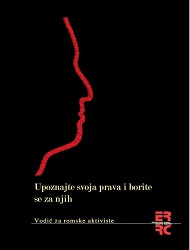
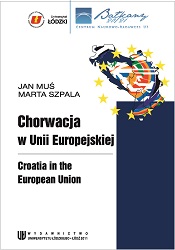
Croatia in the European Union by Jan Muś and Marta Szpala is another publication in a series „Balkans XX/XXI” published by the Research Centre of the University of Łódź “Balkans at the turn of the 20th and 21st century”. This book aims to reach a wide range of readers, interested in contemporary issues of the Balkan states. Publication is preceded by “Introduction” by the Ambassador of Republic of Croatia to Poland, who expressed hope that “it will contribute to better understanding of both negotiation process and accession of Croatia to the EU, as well as to realizing potential beneficial cooperation between Poland and Croatia on the European Union’s forum”.
More...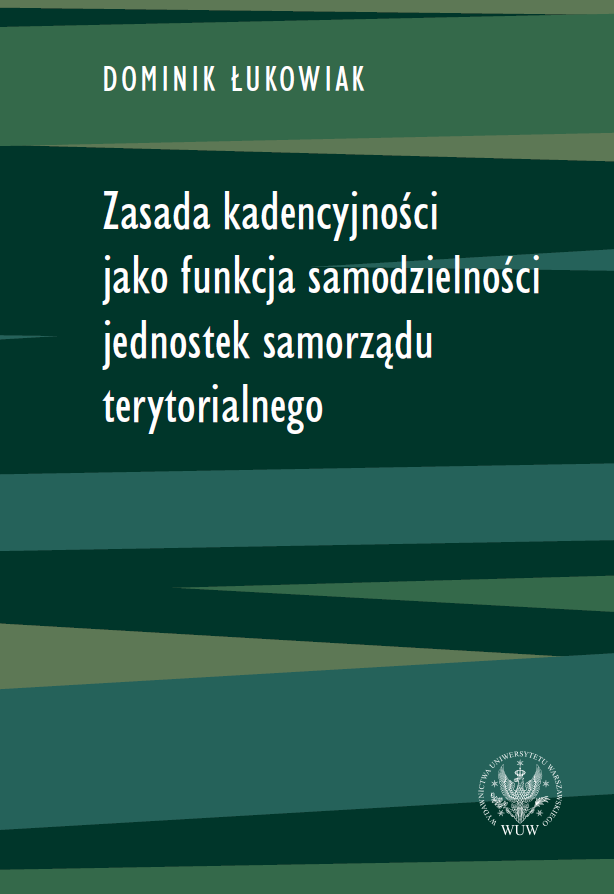
The study concerns local government law and the term of office of bodies of local government units. The author analyses existing regulations regarding the term of office in view of its importance for local structures in de-centralised public authorities.
More...
The issue with conventional crime has remained as one of the most dominant topics in Bulgarian society in the past 30 years. In the late 1990s, along with the phenomenon of "power crime groups" - the Bulgarian version of organized crime, the huge number of daily criminal incidents created a feeling of insecurity and fear among Bulgarian citizens. As a result, there is a tendency in society for extremely strong distrust in the information received from the institutions, especially in the data on the criminal situation in the country. In this context, in 2001 the Center for the Study of Democracy developed and proposed the country's first alternative crime assessment tool, the National Crime Survey (NCS). The NCS is a tool that allows for an in-depth analysis of trends and extend of crime in Bulgaria. Each year, the NCS collects information through a nationally representative sociological survey - "victimization survey", or a survey of victims of crime. This method provides reliable information on the crimes being reported and registered by the police authorities, as well as and the ones not reported by the victims. The current report presents an analysis on the results from the National Crime Survey conducted in the first half of 2020 and puts forward recommendations for increasing the efficiency of the institutions in registering crimes reported by victims.
More...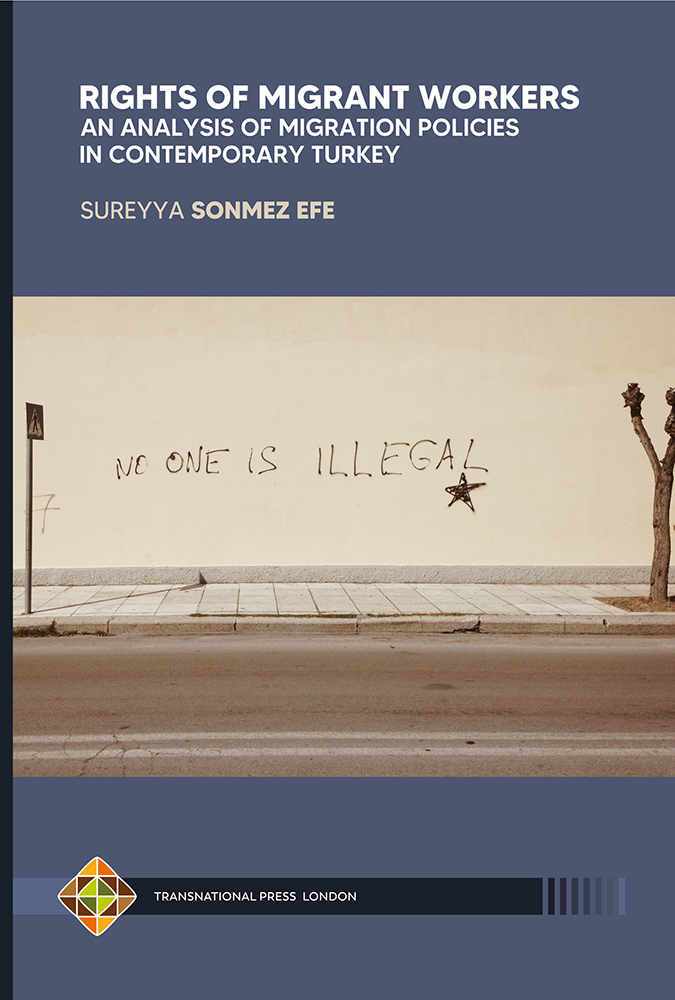
This insightful book discusses how policymakers define migrant workers’ status and rights at international and national levels. Assessing the evolution of the language of rights for migrant workers in international law; definition of migrant workers in Turkish legislation; key political and economic factors on Turkish migration policies; protection mechanisms that safeguard migrant workers’ rights, it critically examines the policymaking processes at international, regional and national levels and evaluates the impact of the ‘values’ such as universal or ethnocentric values, on the definitions of status and rights of migrant workers.The chapters evaluate the status and rights of migrant workers through the lens of cosmopolitan moral constructivism and examine the law making procedures and illustrate the dynamism of these processes with the inclusion of various conditions and actors. The book dissects the key universal and national values that impact on rights of migrant workers. This timely book challenges the rising right-wing ethnocentric policy approaches to (labour) migration to migrant workers’ rights, and problematises the existing legal definitions within migration policies that place the rights of migrant workers into a precarious policy sphere.By entering the controversial political debate for labour migration and the policy making realm, this book is ideal for scholars and researchers of political science, international relations and social policy, particularly those focusing on international (labour) migration and migration policies. It will further benefit the policymakers and practitioners working on migration, such as UN agencies, NGOs, civil societies and local authorities.
More...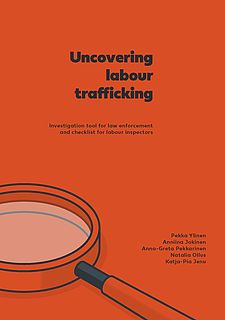
Identifying and investigating labour exploitation and trafficking is a challenging task. These are often international crimes in which migrant workers from one or more countries are brought to a third country, where their vulnerable position and ignorance are exploited by the offenders in multiple ways. Labour exploitation is found particularly frequently in labour-intensive sectors such as restaurants, cleaning, agriculture and construction. The present investigation tool was developed in the EU-funded FLOW project, whose target group comprises of criminal investigation authorities and labour inspection authorities in Finland, Bulgaria, Latvia and Estonia. Its purpose is to increase awareness of labour exploitation and trafficking and to offer concrete steps in identifying and investigating these phenomena.
More...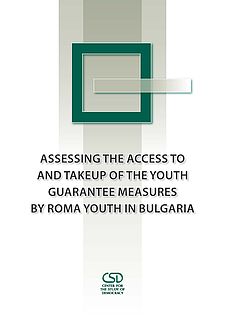
The 2008 global financial crisis resulted in economic challenges in the EU, one of which was a boom of youth unemployment. In response to the increase of youth unemployment, the EU designed the Youth Guarantee (YG), a scheme guaranteeing that every EU citizen between the ages of 15-24 who is out of employment, training and education, would receive support in finding temporary work, continuing education and practical training. With the initiation of the YG, the EU set expectations that every EU member state would implement the YG by introducing respective measures. In Bulgaria, a great portion of the YG target group are Roma youth. This publication reports on the results of research assessing the uptake of the YG among Roma youth in Bulgaria and offers recommendations to relevant stakeholders for the enhancement of such uptake.
More...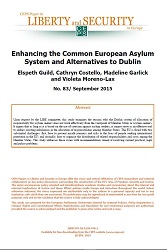
Upon request by the LIBE committee, this study examines the reasons why the Dublin system of allocation of responsibility for asylum seekers does not work effectively from the viewpoint of Member States or asylum-seekers. It argues that as long as it is based on the use of coercion against asylum seekers, it cannot serve as an effective tool to address existing imbalances in the allocation of responsibilities among Member States. The EU is faced with two substantial challenges: first, how to prevent unsafe journeys and risks to the lives of people seeking international protection in the EU; and secondly, how to organise the distribution of related responsibilities and costs among the Member States. This study addresses these issues with recommendations aimed at resolving current practical, legal and policy problems.
More...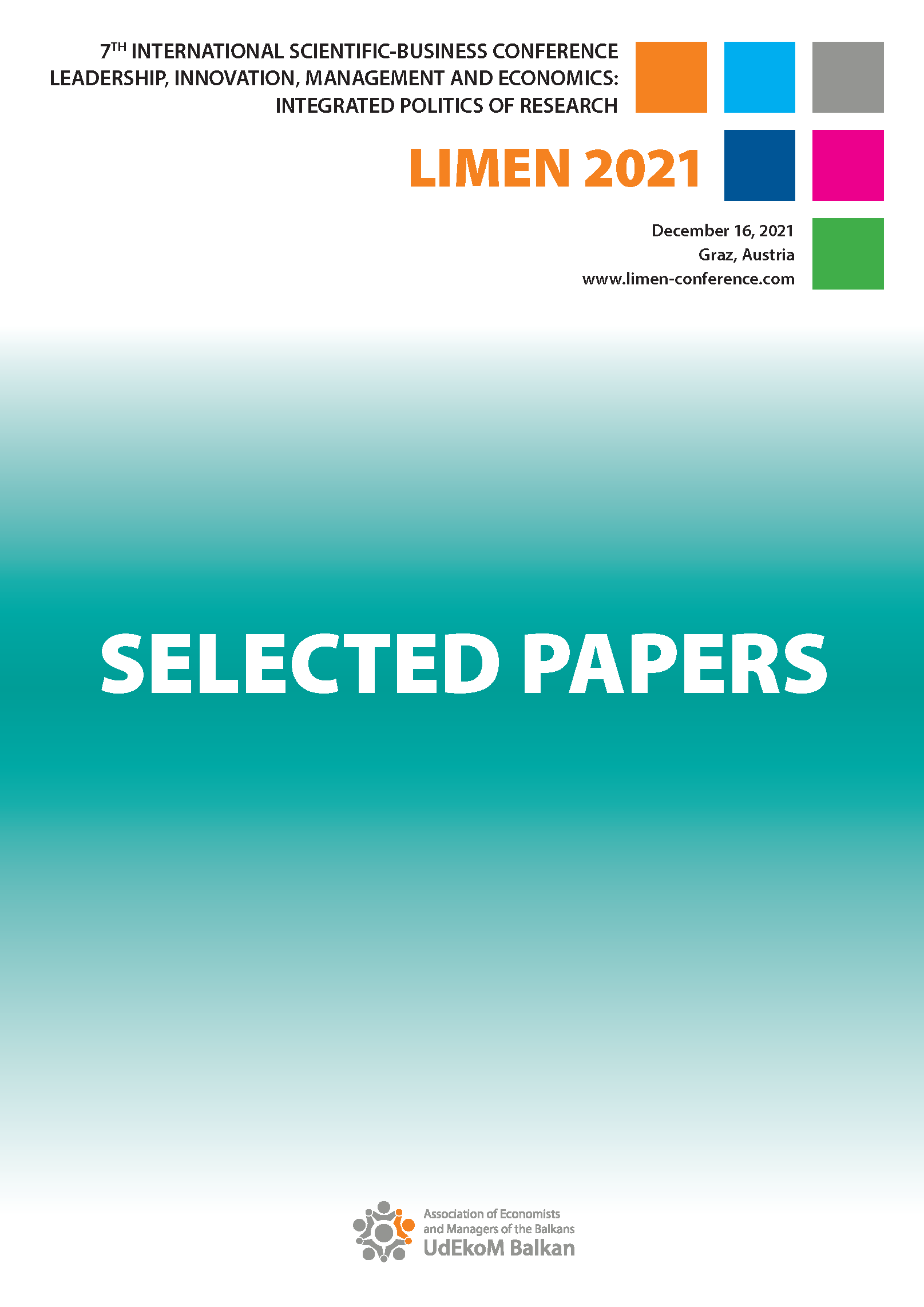
Organizing is an evolutionary phenomenon, distinctive because of the laws of existence and maintaining all structures in all processes of their functioning. As such, it is a civilizational phenomenon also that occurs as a component of human, individual and social activities and as a factor in the overall development of man and society.On the other hand, as a deliberate human activity, organizing involves seeking solutions to problems that occur on the way to achieving specific goals. No goal can be achieved without appropriate or necessary, or at least minimal organization of conditions, factors, and processes needed for goal achievement. However, the new era requires new types of leaders and managers, and new forms of organization; demands those who are willing and able to lead the company/corporation/state, in a distinct competitive environment, with all the good and bad sides brought by the globalization of world economy. The purpose of the annual LIMEN conference is to support the power of scientific research and dissemination of the research results with the objective to enhance society by advancing knowledge; policy-making change,lives, and ultimately, the world. Our objective is to continue to be the foremost annual conference on cutting-edge theory and practice of leadership, innovations, management, and economics, encouraging advancement via excellence,and interaction. LIMEN conference aims to bring together the international academic community (experts, scientists, engineers,researchers, students, and others) and enable interactive discussions and other forms of interpersonal exchange of experiences and popularization of science and personal and collective affirmation. The annual LIMEN conference is committed to the highest standards of publishing integrity and academic honesty ensuring ethics in all its publications. Conformance to standards of ethical behavior is therefore expected of all parties involved: authors, editors, reviewers, and the publisher. The conference organizer follows the Committee on Publication Ethics (COPE) guidelines on how to deal with potential acts of misconduct. All received full papers prior peer review process are subject to plagiarism check with iThenticate by Turnitin software. Any identified plagiarism automatically disqualifies a paper. Afterward, all full papers are double-blind peer-reviewed by the reviewers drawn from the editorial committee or external reviewers depending on the topic, title, and the subject matter of the paper. Peer reviewers provide a critical assessment of the paper and may recommend improvements. Although the author may choose not to take this advice, we highly recommend that the author address any issues, explaining why their research process or conclusions are correct. Association of Economists and Managers of the Balkans headquartered in Belgrade – Serbia along with the partner institutions, namely the Faculty of Engineering Management - Belgrade, Serbia; Modern Business School- Belgrade, Serbia; the University of Novo Mesto, Faculty of Business and Management Sciences, Slovenia; the University of Novo Mesto, Faculty of Economics and Informatics, Slovenia; Business Academy Smilevski - BAS,Skopje, North Macedonia; and BAS Institute of Management, Bitola, North Macedonia organized 7th International Scientific-Business Conference titled: Leadership, Innovation, Management, and Economics: Integrated Politics of Research – LIMEN 2021 on December 16, 2021. Bearing in mind the challenges of a dynamic engagement in contemporary organizations, it is clear that the analysis of these important subjects should be applied interdisciplinary approach. For this reason, the main theme of the conference LIMEN 2021 was processed through the following key topics:• COVID-19 Pandemic Influence on Business Operations and Management• Leaders and Leadership• Entrepreneurship• Innovation• Creativity• Management of Small and Medium-sized Enterprises• Contemporary Strategic Management• Financial Management and Banking• Marketing Management• Project Management• GREEN Management• Natural Resource Management• Quality Management• Management of New Technologies• Management Information Systems• Education Management• Intercultural Management• Public Sector Management• Human Resources Management• Organizational Behavior• Business Ethics• Macroeconomics• Microeconomics• Finance• Marketing• Labour Law• Business Law LIMEN 2021 keynote speaker was Prof. Dr Dominika Gałkiewicz representing the University of Applied Sciences Kufstein, Tirol, Kufstein, Austria with the topic “Sustainability Regulation and Reporting: Trends in the Dach Region”. Within publications from LIMEN 2021 conference:• 15 double peer-reviewed papers have been published in the Selected Papers - International Scientific-Business Conference LIMEN 2021 • 39 double peer-reviewed papers have been published in the Conference Proceedings - International Scientific-Business Conference LIMEN 2021• 70 abstracts have been published in the Book of Abstracts - International Scientific-Business Conference LIMEN 2021. Altogether LIMEN 2021 publications have more than 600 pages. All full papers have DOI numbers and ORCID iD integration. Participation in the conference took nearly 140 researchers with the abstracts/papers representing 16 different countries from different universities, eminent faculties, scientific institutes, colleges, various ministries, local governments, public and private enterprises, multinational companies, associations, etc.
More...